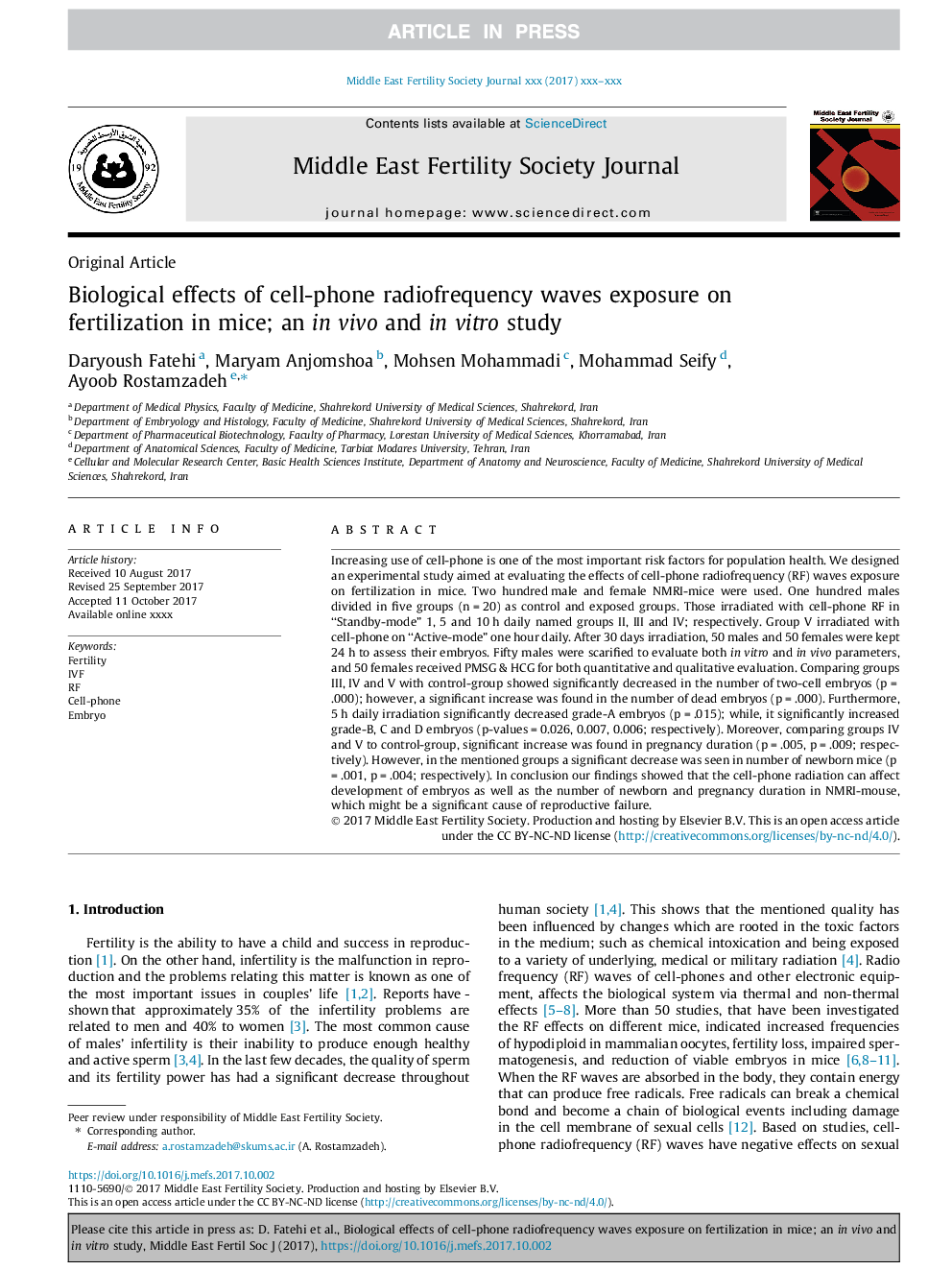| Article ID | Journal | Published Year | Pages | File Type |
|---|---|---|---|---|
| 8783195 | Middle East Fertility Society Journal | 2018 | 6 Pages |
Abstract
Increasing use of cell-phone is one of the most important risk factors for population health. We designed an experimental study aimed at evaluating the effects of cell-phone radiofrequency (RF) waves exposure on fertilization in mice. Two hundred male and female NMRI-mice were used. One hundred males divided in five groups (nâ¯=â¯20) as control and exposed groups. Those irradiated with cell-phone RF in “Standby-mode” 1, 5 and 10â¯h daily named groups II, III and IV; respectively. Group V irradiated with cell-phone on “Active-mode” one hour daily. After 30 days irradiation, 50 males and 50 females were kept 24â¯h to assess their embryos. Fifty males were scarified to evaluate both in vitro and in vivo parameters, and 50 females received PMSG & HCG for both quantitative and qualitative evaluation. Comparing groups III, IV and V with control-group showed significantly decreased in the number of two-cell embryos (pâ¯=â¯.000); however, a significant increase was found in the number of dead embryos (pâ¯=â¯.000). Furthermore, 5â¯h daily irradiation significantly decreased grade-A embryos (pâ¯=â¯.015); while, it significantly increased grade-B, C and D embryos (p-valuesâ¯=â¯0.026, 0.007, 0.006; respectively). Moreover, comparing groups IV and V to control-group, significant increase was found in pregnancy duration (pâ¯=â¯.005, pâ¯=â¯.009; respectively). However, in the mentioned groups a significant decrease was seen in number of newborn mice (pâ¯=â¯.001, pâ¯=â¯.004; respectively). In conclusion our findings showed that the cell-phone radiation can affect development of embryos as well as the number of newborn and pregnancy duration in NMRI-mouse, which might be a significant cause of reproductive failure.
Related Topics
Health Sciences
Medicine and Dentistry
Obstetrics, Gynecology and Women's Health
Authors
Daryoush Fatehi, Maryam Anjomshoa, Mohsen Mohammadi, Mohammad Seify, Ayoob Rostamzadeh,
